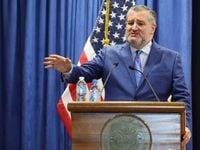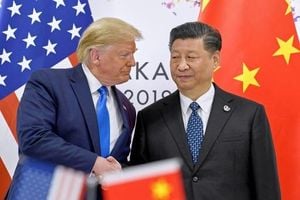For decades, late-night television has been a raucous arena for political satire and cultural commentary, but rarely has it found itself at the center of a national debate on free speech and government overreach quite like this. The indefinite suspension of Jimmy Kimmel Live from ABC’s airwaves in September 2025, after a fiery monologue and subsequent threats from the Federal Communications Commission (FCC), has triggered an extraordinary clash among top lawmakers, media executives, and the White House—raising urgent questions about the boundaries of government power and the future of broadcast speech in America.
It all started on September 15, 2025, when Jimmy Kimmel, never one to shy from controversy, delivered a monologue that cut deep into the MAGA movement. Addressing the tragic murder of conservative activist Charlie Kirk, Kimmel remarked, “We hit some new lows over the weekend with the MAGA gang desperately trying to characterize this kid who murdered Charlie Kirk as anything other than one of them, and doing everything they can to score political points from it.” According to Deadline and NBC News, this comment set off a political firestorm, with supporters of former President Donald Trump decrying Kimmel’s words as slanderous and inflammatory.
The suspect in Kirk’s murder, 22-year-old Tyler Robinson, had reportedly grown up in a conservative household but, as Utah authorities revealed, had begun leaning more to the left in the year leading up to the crime. Nonetheless, the political battle lines were quickly drawn, with partisans on both sides seizing upon Kimmel’s remarks to score their own points in the ongoing culture wars.
But the controversy truly exploded when FCC Chairman Brendan Carr, a Trump appointee, intervened. In an interview with conservative commentator Benny Johnson on September 17, Carr issued a stark warning to ABC and its parent company, Disney. “Frankly, when you see stuff like this, I mean, we can do this the easy way, or these companies can find ways to change conduct, to take action, frankly, on Kimmel, or there’s going to be additional work for the FCC ahead,” Carr said, as reported by Deadline and The Guardian. He suggested that ABC affiliates could face fines or even license revocation if they continued airing Kimmel’s show, describing the comedian’s remarks as “the sickest conduct possible.”
Within hours, Nexstar, which owns dozens of local ABC affiliates, announced it was pulling Jimmy Kimmel Live from its lineup. Disney-owned ABC soon followed suit, suspending the show indefinitely. The move set off a cascade of outrage—not just from Democrats and civil liberties groups, but also from a surprising corner: Republican lawmakers themselves.
Senator Ted Cruz of Texas, chairman of the Senate Commerce Committee (which oversees the FCC), took to his own podcast to deliver a blistering rebuke of Carr’s threats. “I think it is unbelievably dangerous for government to put itself in the position of saying, ‘We’re going to decide what speech we like and what we don’t, and we’re going to threaten to take you off air if we don’t like what you’re saying,’” Cruz said, according to NBC News. He didn’t mince words in his criticism, comparing Carr’s posture to mafia intimidation tactics from the film Goodfellas: “That’s right out of a mafioso coming into a bar going, ‘Nice bar you have here. It’d be a shame if something happened to it.’”
Though Cruz made clear he was no fan of Kimmel’s, calling the host’s comments “deplorable” and “disgraceful,” he insisted the proper remedy was not government censorship but a defamation lawsuit. “It might feel good right now to threaten Jimmy Kimmel, but when it is used to silence every conservative in America, we will regret it,” Cruz cautioned, warning that such powers could be wielded just as ruthlessly by Democrats in the future.
Other Republicans echoed Cruz’s concerns. Senator Thom Tillis of North Carolina declared, “Cruz is absolutely right. This is just unacceptable behavior.” Senator Dave McCormick of Pennsylvania agreed, adding, “Good riddance to Jimmy Kimmel and his disgusting rhetoric. Ted also raises important concerns about the comments of the FCC chairman.” Yet not all in the GOP were on the same page. Representative Chip Roy of Texas defended Carr, arguing, “The FCC was raising questions about what these broadcast entities are doing with their licenses. They’re well within their bounds to do that.” Meanwhile, House Speaker Mike Johnson described ABC’s suspension of Kimmel as a private business decision, not a government mandate.
President Trump, for his part, sided firmly with Carr. Speaking to reporters in the Oval Office, Trump called Carr “a great American patriot” and “courageous,” stating, “I disagree with Ted Cruz.” Trump even floated the idea that broadcasters critical of his administration should have their FCC-issued licenses revoked, asserting, “That’s no longer free speech … That’s just cheating, and they cheat.” He cited a report—though with inflated figures—from the Media Research Center, claiming news coverage was overwhelmingly negative toward him.
Democrats, meanwhile, were quick to condemn Carr’s threats and the administration’s posture. Senate Minority Leader Chuck Schumer labeled Carr “one of the single greatest threats to free speech America has ever known” and called for his resignation or removal. Democratic lawmakers in the House requested the FCC’s inspector general investigate Carr’s conduct, while members of the Senate Commerce Committee pressed Cruz to hold hearings on the matter. “At a time when free speech is under threat, this hearing could not be more important for the American people,” they wrote in a letter to Cruz.
The episode also drew attention to the broader issue of government involvement in media licensing. Cruz referenced a recent case in which a public interest group challenged Fox’s broadcast license over revelations from the Dominion Voting Systems defamation lawsuit—an action ultimately dismissed by FCC Chairwoman Jessica Rosenworcel just before she left office. The Fox-Dominion case, which ended in a record $787.5 million settlement, was cited as an example of how speech concerns are increasingly being litigated both in the courts and in the regulatory arena.
As of September 20, 2025, the future of Jimmy Kimmel Live remains uncertain, with neither ABC nor Kimmel himself offering public comment on the suspension. FCC Chairman Carr, for his part, has suggested that further action may be forthcoming, telling CNBC, “We’re not done yet.”
The saga has exposed deep and growing rifts—not just between left and right, but within the Republican Party itself—over the limits of government power, the sanctity of free speech, and the responsibilities of media in a polarized era. Whether the Kimmel controversy marks a turning point in the battle over broadcast speech, or simply another chapter in America’s endless culture wars, remains to be seen. For now, the only certainty is that the nation’s airwaves—and the constitutional questions that surround them—are more contested than ever.





